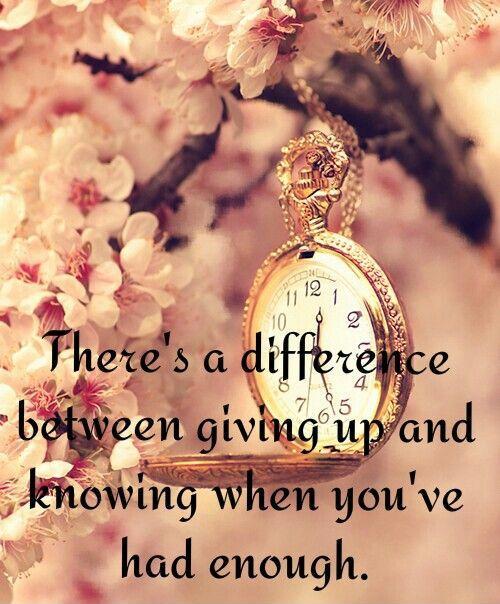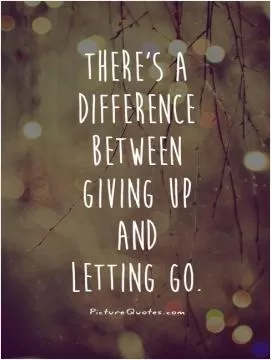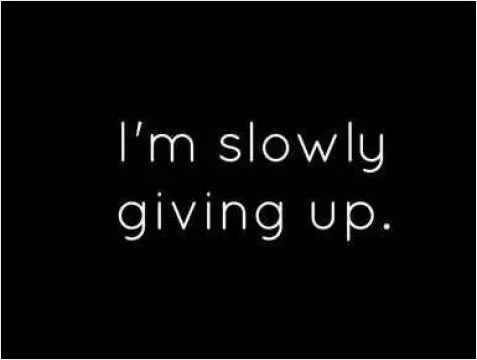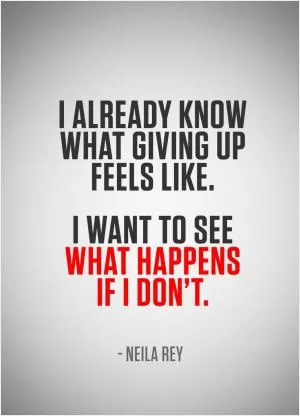There's a difference between giving up and knowing when you've had enough

There's a difference between giving up and knowing when you've had enough
There is a subtle yet significant distinction between giving up and knowing when you've had enough. While both may involve walking away from a situation, the motivations and mindset behind each decision are vastly different.Giving up often carries a negative connotation, implying a sense of defeat or failure. It suggests that one has abandoned their efforts prematurely, without fully exhausting all possible options or resources. Giving up can stem from feelings of frustration, impatience, or insecurity. It may result from a lack of perseverance or resilience in the face of challenges. When someone gives up, they may feel a sense of regret or disappointment, wondering if they could have done more to achieve their goals.
On the other hand, knowing when you've had enough is a more empowered and self-aware decision. It involves recognizing when a situation is no longer serving your best interests or well-being. It requires introspection, honesty, and courage to acknowledge that continuing to invest time and energy into a particular endeavor is no longer worthwhile. Knowing when you've had enough is a form of self-care and self-respect. It demonstrates a willingness to prioritize your own needs and boundaries, even if it means letting go of something that once held value or significance.
The key difference between giving up and knowing when you've had enough lies in the intention behind the decision. Giving up is often driven by negative emotions and a sense of defeat, while knowing when you've had enough is guided by self-awareness and a desire for personal growth and fulfillment. Giving up may lead to feelings of regret and self-doubt, while knowing when you've had enough can bring a sense of liberation and empowerment.












 Friendship Quotes
Friendship Quotes Love Quotes
Love Quotes Life Quotes
Life Quotes Funny Quotes
Funny Quotes Motivational Quotes
Motivational Quotes Inspirational Quotes
Inspirational Quotes